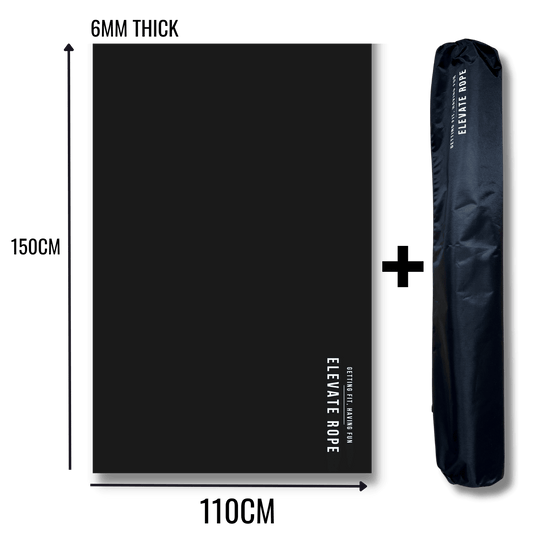Introduction

Success in exams demands more than intelligence. It requires physical fitness and focus to stay sharp under pressure. Long study hours, stress, and fatigue drain energy and weaken concentration. Many learners struggle with sluggishness, mental blocks, and poor retention during preparation.
Adding fitness into daily routines can change this. Exercise strengthens both body and mind, improving endurance and mental clarity. Even short workouts boost blood flow to the brain, helping you process information better. Whether you’re preparing for a trade test, vocational license, or academic certification, balancing physical fitness and focus is essential.
Adding fitness into daily routines can change this. Exercise strengthens both body and mind, improving endurance and mental clarity. Even short workouts with an Elevate jump rope boost blood flow to the brain, helping you process information better.
The Science of Physical Fitness and Focus
When you move your body, you power your brain. Exercise increases heart rate and delivers more oxygen and nutrients to brain cells. This supports neuroplasticity, the brain’s ability to form and strengthen new connections. Stronger neural pathways mean better memory, faster learning, and clearer thinking.
Research from Harvard Health shows exercise raises levels of brain-derived neurotrophic factor (BDNF).
- Research shows that regular exercise improves memory and thinking skills (Harvard Health).
- Aerobic training raises brain-derived neurotrophic factor and supports neuroplasticity (NIH review).
This protein protects neurons, supports growth, and enhances communication between brain cells. Higher BDNF equals sharper focus and stronger recall — exactly what students need for exams.
Aerobic activity, such as jump rope training, is especially powerful. Studies reveal that just 20 minutes of dynamic movement improves attention and problem-solving skills. Regular sessions also reduce anxiety, helping exam candidates stay calm under pressure.
Why Students Lose Focus Without Fitness
Exam preparation often demands long periods of sitting. Hours at a desk or computer strain the body and slow the mind. Here’s why skipping exercise reduces performance:
- Poor circulation: Limited movement lowers blood flow to the brain, reducing alertness.
- Mental fatigue: Without breaks, concentration weakens and errors increase.
- Stress buildup: Study pressure without physical release leads to anxiety and burnout.
- Low energy: Sedentary routines slow metabolism, leaving students tired and unmotivated.
By neglecting physical fitness and focus , many learners sabotage their own performance. Small daily workouts can prevent this decline.
Fitness Strategies to Improve Exam Focus

1. Use Short Jump Rope Sessions
Jump rope is one of the most efficient workouts for students. A five-minute session between study blocks refreshes the mind. It raises oxygen flow, increases alertness, and resets concentration.
2. Follow the 30-30 Method
Alternate 30 minutes of studying with three minutes of movement. A short jump rope workout or bodyweight exercise keeps energy steady. This rhythm prevents mental fatigue and makes learning more efficient.
3. Mix Aerobic and Strength Work
Aerobic fitness builds endurance, while strength training supports posture and focus. Combine skipping with push-ups, squats, or planks. Stronger muscles reduce physical discomfort during long study hours.
4. Prioritize Consistency Over Intensity
Daily activity matters more than heavy workouts once a week. Even light exercise, done regularly, strengthens the link between physical fitness and focus . Schedule short sessions before study time and after long reading blocks.
If you’re ready to try a real workout, here’s a jump rope session you can follow along with to boost both focus and fitness:
Balancing Work, Fitness, and Exam Prep
Many exam candidates juggle jobs, families, and study commitments. Time feels limited, but fitness does not require long hours. Small adjustments make a big difference:
- Morning routine: Start with 10 minutes of skipping to wake the body and mind.
- Study breaks: Use short bursts of exercise to refresh focus.
- Evening reset: Stretching or yoga reduces stress and prepares you for quality sleep.
Jump rope is ideal for busy students. It delivers maximum benefits in minimum time. A 10-minute workout burns calories, improves circulation, and sharpens the mind.
For candidates preparing for technical or licensing exams, stamina matters. A mechanical contractor license exam or electrical test may last several hours.
Online learning platforms, such as RocketCert, give flexibility to combine study with exercise. Since lessons are available anytime, you can fit workouts into your daily schedule without stress.
For quick, effective study breaks, check out our speed ropes designed to keep workouts short, sharp, and effective.
The Role of Nutrition in Focus and Fitness
Exercise alone is not enough. Nutrition directly affects brain performance. Students should pair fitness with mindful eating habits:
- Protein: Eggs, lean meat, and Greek yogurt fuel muscles and stabilize energy.
- Complex carbs: Whole grains and vegetables keep blood sugar steady for longer focus.
- Healthy fats: Nuts, seeds, and avocados support brain health.
- Hydration: Even mild dehydration reduces attention and memory. Drink water often.
Balanced meals help maximize the benefits of physical fitness and focus . Avoid heavy processed foods that cause sluggishness. Choose nutrient-dense snacks before study sessions for steady energy.
Rest and Recovery for Peak Performance
Pushing too hard without rest backfires. Sleep is a critical part of both learning and fitness. During deep rest, the brain processes new information and stores memories. Skipping sleep erases the benefits of long study sessions.
Combine quality rest with recovery activities:
- Stretching after workouts prevents stiffness.
- Meditation lowers stress and clears mental fog.
- Regular breaks reduce burnout and protect motivation.
Think of rest as active preparation. It sharpens both physical performance and exam results.
How Physical Fitness Shapes Exam Success
The connection between physical fitness and focus delivers three major benefits:
- Sharper memory and recall: Exercise improves blood flow, oxygen delivery, and neural growth.
- Reduced stress and anxiety: Physical activity lowers cortisol and boosts mood.
- Sustained endurance: Fitness builds stamina for long exams and extended study sessions.
Students who combine exercise with study are more confident and resilient. They retain more knowledge and handle pressure better.
Practical Fitness Plan for Exam Candidates
Here’s a simple weekly routine to maintain physical fitness and focus during exam prep:
- Monday: 10 minutes jump rope + light stretching
- Tuesday: 15 minutes bodyweight training (push-ups, squats, planks)
- Wednesday: 10 minutes jump rope intervals
- Thursday: 20 minutes brisk walk or cycling
- Friday: 10 minutes jump rope + core workout
- Saturday: 15 minutes mixed exercises (strength + cardio)
- Sunday: Rest, stretching, or yoga
This plan balances intensity and recovery. It keeps both body and brain active without stealing hours from study time.
Conclusion
Exams test more than knowledge — they test endurance, memory, and mental clarity. Building physical fitness and focus gives students an advantage. Exercise increases circulation, reduces stress, and strengthens the brain’s ability to learn.
By including small workouts in your study routine, you improve energy and sharpen concentration. Balanced nutrition and proper rest complete the formula. The result is better retention, greater confidence, and higher performance on exam day.
Start today with just a few minutes of movement. Over time, your body and brain will adapt, making you stronger, sharper, and more prepared to succeed.












